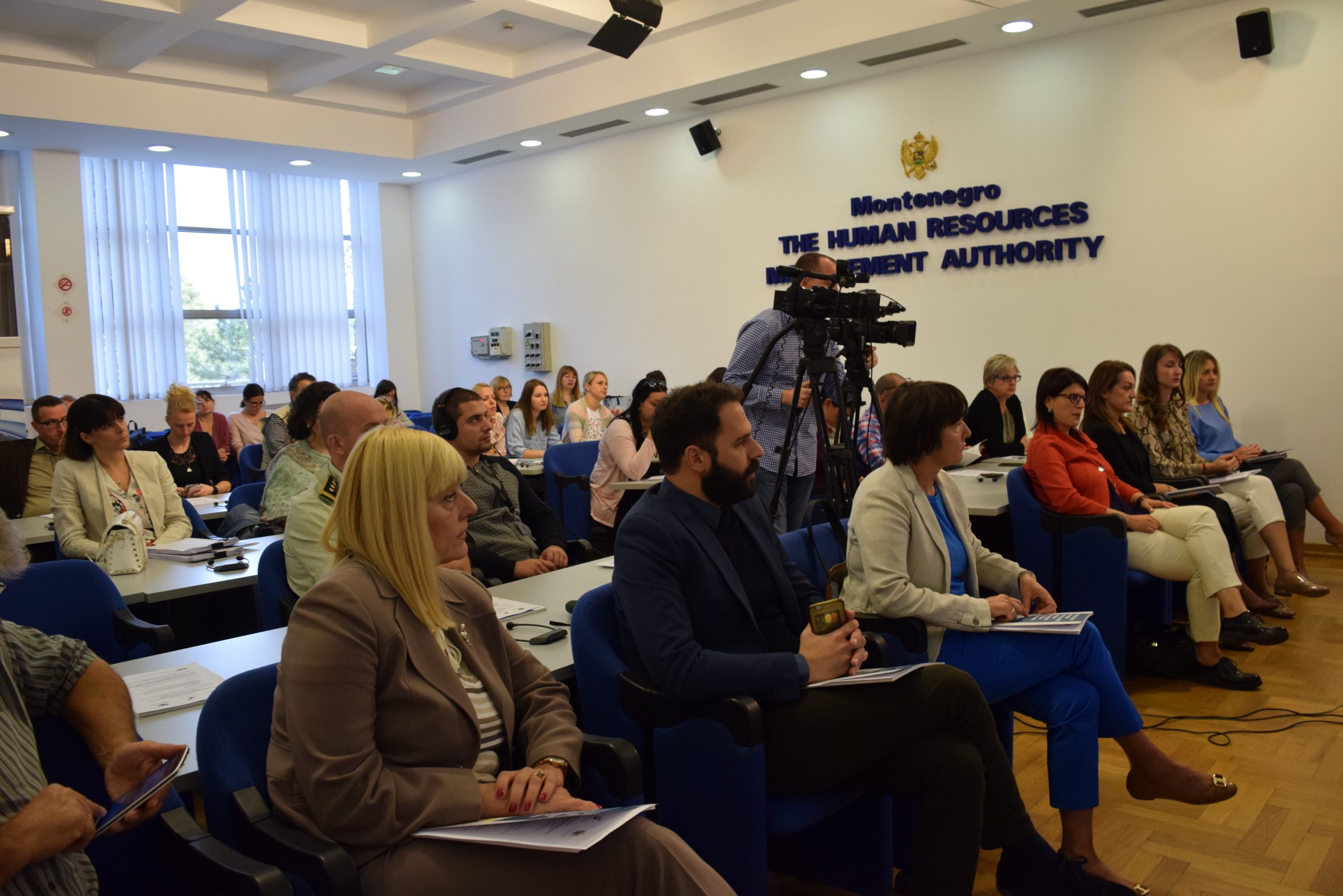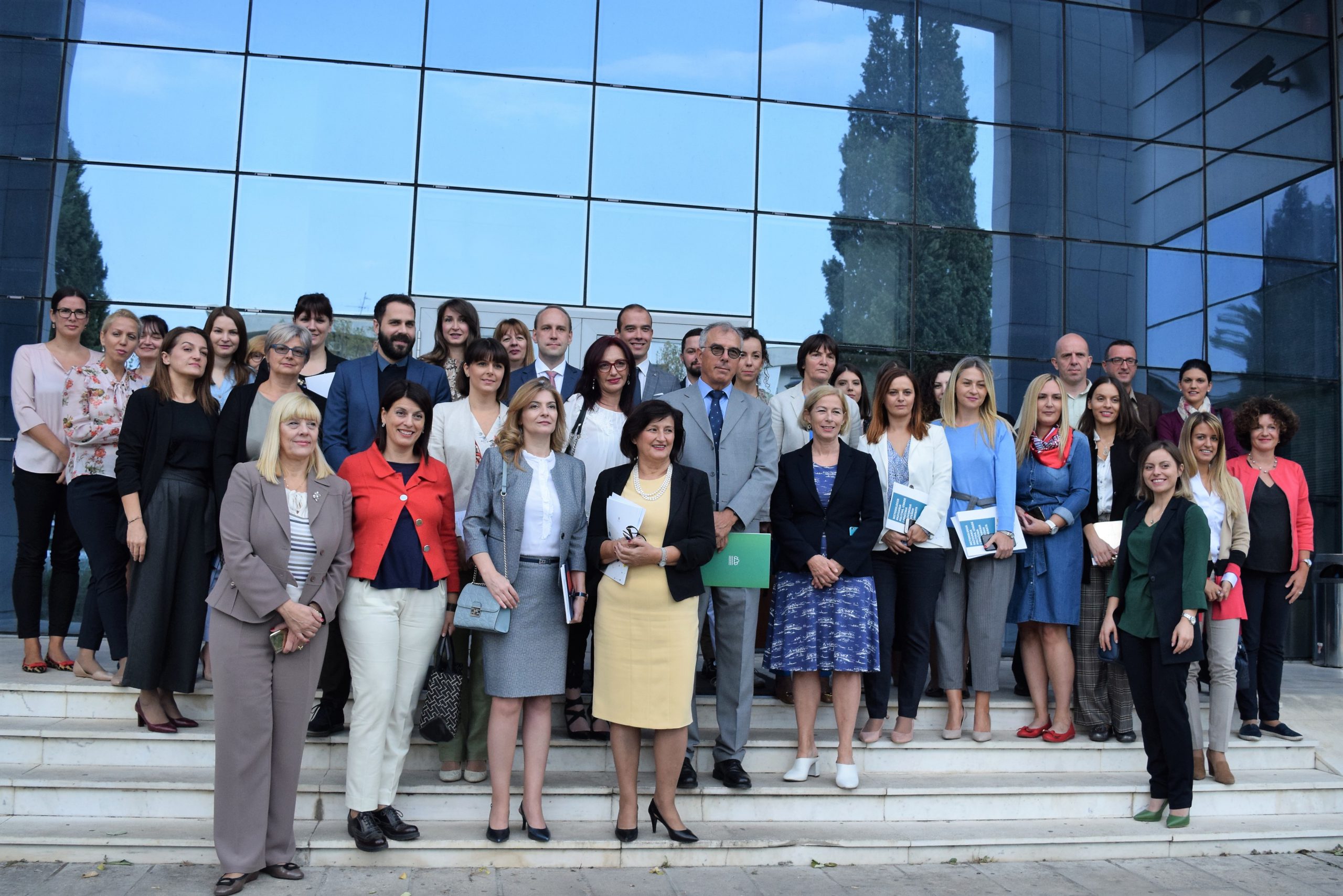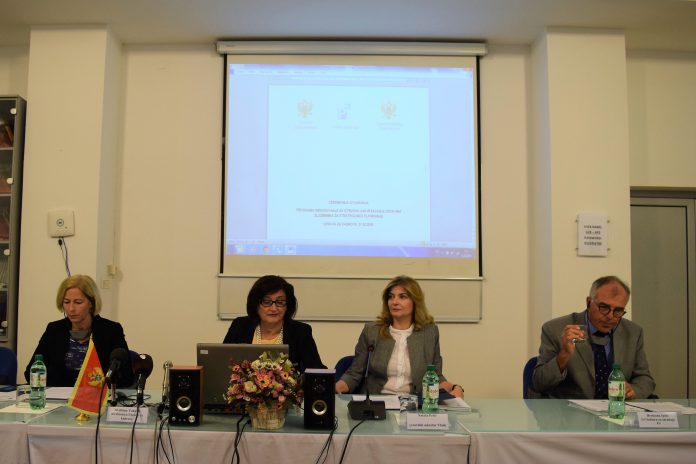Today, at the opening of the Education Programme for the professional development of civil servants engaged in strategic planning activities was announced that all civil servants and employees should improve their knowledge and competence in order to contribute to the achievement of the set goals in the state administration. It was announced at the opening of the Education Programme for the professional development of civil servants engaged in strategic planning activities.
The education programme is being implemented in cooperation with the Human Resources Management Department within the Sector Budget Support for the implementation of the Public Administration Reform Strategy, a total value of EUR 15 million for the period until the end of 2020, financed by the European Union, while support for the preparation of Methodology, with the financial support of the Government of Norway, is provided by UNDP. The aim of the Programme is to provide highly skilled state employees who will respond to the strategic planning task.
The Secretary General of the Government Nataša Pešić, reminded that the Sector for Coordination, Monitoring of Compliance and Monitoring the Implementation of Strategies for Establishing Public Policies, which is the basis for monitoring the functioning of this legal mechanism, is functioning within the General Secretariat of the Government.
“I assure you that the task of the Secretariat-General is to insist on the full implementation of the legislative framework that governs the field. The focus remains on strengthening the mid-term planning system, because only in this way can we create a clear vision of progress, as well as financial sustainability for the implementation of planned policies”, Secretary General Pešić said.
Secretary General Pešić pointed out that the main goal of the Programme is to improve the knowledge of civil servants on the process of developing public policies and the skills to use different analytical methods in the process of planning and implementation of strategic documents.

Director of Human Resources Management Authority Svetlana Vuković said that the strategic planning is a process that determines the place where the institution will be in the future.
“It is very important to know how to plan strategically, because the strategic plan sets priorities and thanks to planning, we avoid spending money and waisting of team strength. Also, I note that planning does not necessarily mean the execution of all planned activities. Good, sensible and feasible plan helps improve performance and fundraising. The most important thing is to have a plan, because there are greater opportunities for achieving stability of the institution”, Director Vuković said.
Head of the Sector for Cooperation in the Delegation of the European Union to Montenegro Hermann Spitz, assessed that Montenegro is at the turning point of the EU accession, and that the reform of public administration and the commitment of the Montenegrin authorities to reforms is of key importance.
“We have a framework for ensuring coherence policy making, but there are still some challenges with regard to the coordination of policies, the execution of these decisions, and the provision of capacity for policy monitoring. The establishment of a mechanism in which all bodies will be included is one of the goals, and in order to do all this, we need a professional public administration that will be educated and expertly trained for strategic planning”, Head of the Sector for Cooperation in the Delegation of the EU to Montenegro Spitz said, adding that he expects the General Secretariat-General of the Government continue to be involved in the overall process and systemic overhaul of strategy document.

Permanent UN System Coordinator in Montenegro Fiona McCluney stated that the Programme shows the determination of the Montenegrin Government to develop a more efficient system of public policy coordination in Montenegro.
”Doing this thoroughly is a fundamental challenge, because it requires not only a precise approach in order to dive and analyse the sea of strategic documents that Montenegro has adopted, 117, to be precise, but this job also requires a vision for the development of a system of coordination and monitoring of these documents, national strategic priorities and the legal acquis”, UN Resident Coordinator Fiona Mc Cluney concluded.
VIDEO:
https://www.youtube.com/watch?v=aZhFGvLx7Ko
https://www.youtube.com/watch?v=MAurbmYsIlA&t=65s
https://www.youtube.com/watch?v=j1ZPvwUJIQA&t=10s
https://www.youtube.com/watch?v=J2aPEQYlNXw
GENERAL SECRETARIAT OF THE GOVERNMENT OF MONTENEGRO







